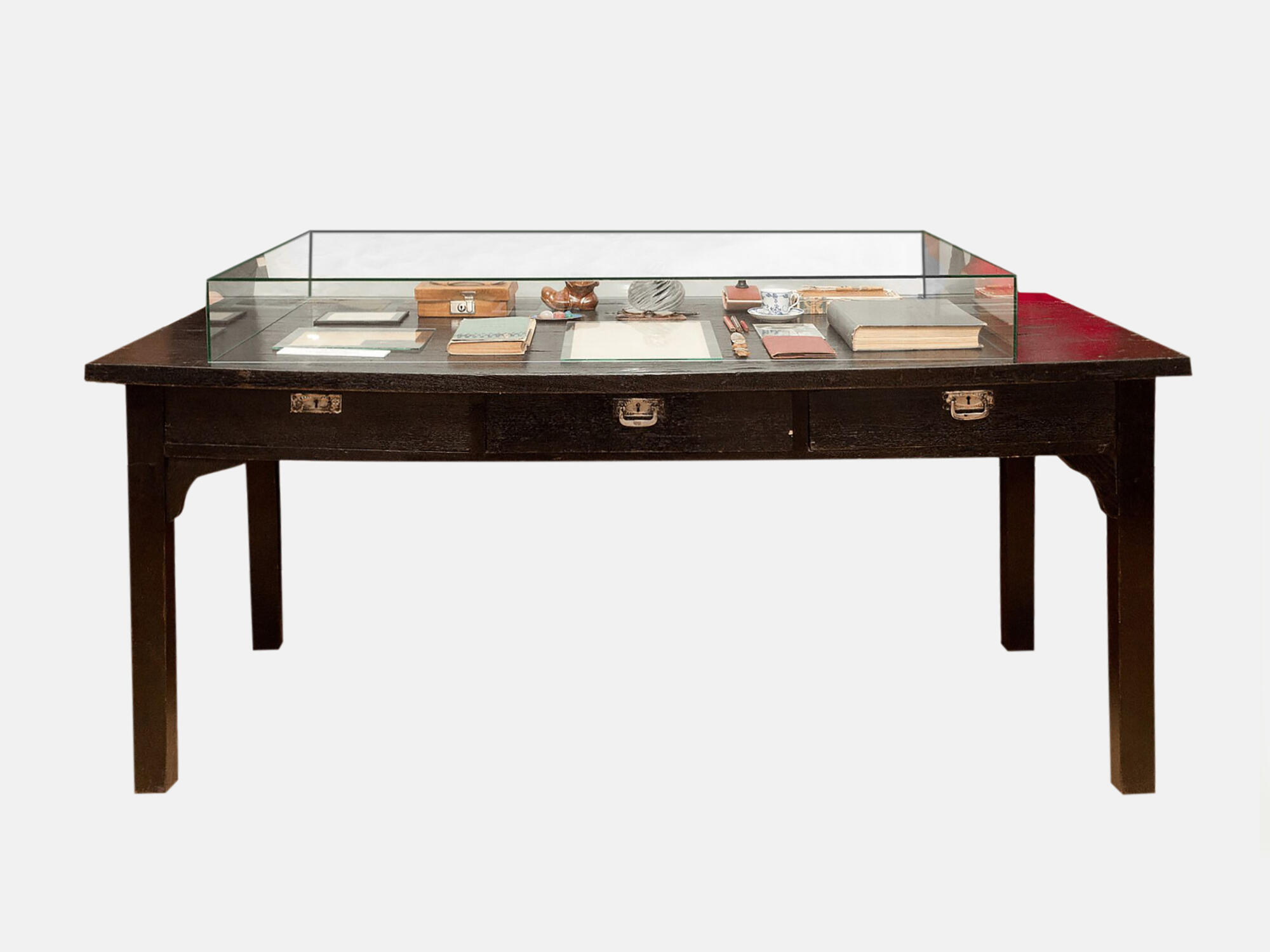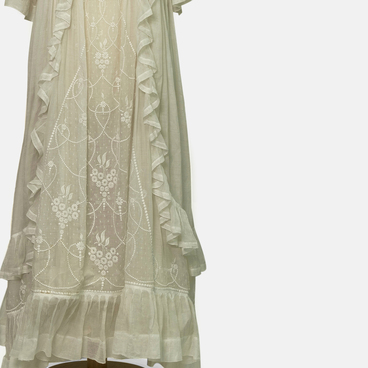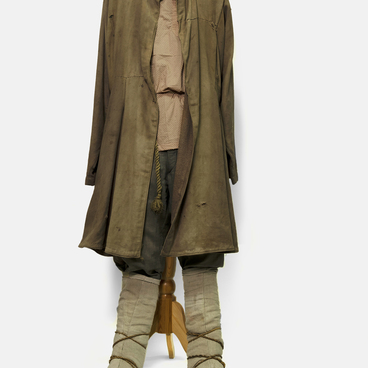Maxim Gorky left Russia in the early 20th century on the eve of the revolution, and only 18 years later, being a world-famous writer, he returned for good. Joseph Stalin ordered that Gorky be given the former estate of the manufacturer Ivan Morozov in Gorki, near Moscow, for him to live in the Soviet Union. The neoclassical building became Maxim Gorky’s summer residence, a place where he worked a lot and received visitors, including the writers Bernard Shaw, Herbert Wells, and Romain Rolland.
Gorky’s desk was in his study. Wherever the writer lived, his desks were plain, equally shaped and custom-made. Their height and surface were greater than the standard ones because of Gorky’s height of 193 centimeters. Moreover, after an incident with a bullet wound in his youth, the writer had problems with his lungs and breathing and it was difficult for him to lean forward while working.
On his desk, Gorky neatly arranged all items: a glass inkpot, a wooden pen with a metal nib, and colored, sharpened pencils. In the center of the desk were sheets of paper, usually with large margins reserved for leaving notes. The neatness of the workplace reflected the writer’s deep inner focus and rationality.
Gorky used glasses only for work, reading or writing. He smoked a lot, but later in life, when he developed a severe cough due to tuberculosis, he smoked only special low-nicotine cigarettes. He put them in a cigarette holder to protect his fingers. One of the cigarette cases is presented next to the first-aid kit, which accompanied Gorky on his many moves.
There are several of the writer’s memorable personal belongings on the table, including pieces of colored Czech glass — a gift from workers and a symbol of the writer’s friendship with the proletariat. There is also the first edition of the book “A Day of the World” dated September 27, 1935. Gorky suggested the idea for this book at the First All-Union Congress of Soviet Writers. He wanted to create a portrait of the Earth, using various accounts and testing everyone’s powers of observation. For Gorky, books were always a source of joy, relaxation, and food for thought. He considered them “a dear habit” and a great pleasure.


